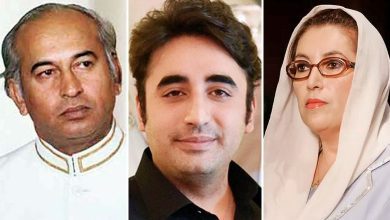By:Shafqat Aziz
The profound impact of effective menstrual hygiene management (MHM) on achieving gender equality and catalyzing social progress was at the forefront of discussions during the noteworthy ‘Policy Dialogue on MHM Products Tax Reforms’, held on August 7, 2023, in the city of Quetta. Esteemed speakers, experts, and stakeholders converged to delve into multifaceted themes such as affordability, accessibility, stigma reduction, education, and the intricate interplay of MHM with holistic development. The dialogues and exchanges during this event offered a powerful illumination of the challenges Balochistan faces in this domain, reinforcing the pivotal role of tax reforms in elevating menstrual hygiene practices.
Dr. Tahira Kamal, a prominent figure and the Chairperson of the MHM Working Group in Balochistan, took the stage to deliver an opening address that not only set the tone for the event but also unveiled the intricate challenges distinctive to the province. Balochistan’s diverse landscape, dotted with remote communities, has grappled with daunting barriers including limited resources, restricted access to education, and a lack of awareness, all of which have inadvertently perpetuated inadequate menstrual hygiene practices among women and girls. Dr. Kamal’s address revealed the underlying complexities that have contributed to this issue, providing a comprehensive overview of the work done by MHM Working Group and overall state of affairs and the importance MHM reforms and a continuous policy dialogue on the matter.
During the collaborative journey, led by MHMWG, Balochistan and its noteworthy organizations such as UNICEF, GIZ Qatar Charity, IRC, Water Aid, and other members have gradually woven a tapestry of progress in the realm of menstrual hygiene management in Balochistan. These collective endeavors have succeeded in raising awareness and infusing communities with the tools to challenge the status quo and empower individuals.
Ms Mahjabeen Sheeran, a notable Parliamentary Secretary to the Chief Minister of Balochistan, wielded a spotlight on the economic implications deeply entwined with MHM reforms. The imposition of taxes on menstrual products currently places an additional burden on women and families, particularly those hailing from marginalized backgrounds. Through her passionate address, Ms. Sheeran showcased a visionary understanding of how reshaping the taxation landscape in this domain could not only ameliorate the lives of women and families but also contribute to the broader economic growth and prosperity of the region.
Dr. M Amiri Hamayun, the Chief Field Officer of UNICEF in Balochistan, graced the dialogue with a comprehensive perspective that stretched beyond the mere boundaries of MHM. His resonant articulation of MHM’s significance reverberated in the hall, portraying tax reforms as catalytic agents poised to foster gender equality and drive social advancement. Dr. Hamayun’s address not only underscored UNICEF’s steadfast commitment to Balochistan’s MHM Working Group but also illuminated the organization’s pledge to initiate and uphold policy reforms that resonate with its mission.
Former Speaker Ms. Rahila Durrani and parliamentarian Yasmin Lehri emphasized the role of awareness in MHM advocacy. Breaking taboos through education was seen as essential, with tax reforms facilitating access to information and resources. Shama Ishaq highlighted tax reforms’ potential to dismantle societal taboos, encouraging open conversations on menstrual health.
Mr. Rahmatullah from the Federal Board of Revenue proposed mutual consultations to categorize MHM products separately from luxury items, potentially reducing taxation. Mr Abdul Wahid Shakir Baloch, Director Education, informed the participants that the government will consider the proposal that MHM should be included in the Cluster Budget of the Education Department, Ms Zulaikha Buledi, Additional Director, and Education, highlighted the importance of collaborated efforts for the promotion of MHM. Ms. Kiran Qazi from UNICEF presented an overview of MHM tax reforms in Pakistan, while Ms. Erum Adnan discussed the impact of taxes on affordability and accessibility of MHM products.
The panel of experts including parliamentarians, academicians as well as civil society and media representatives emphasized the need for a sustained media campaign to destigmatize menstruation and raise awareness. Such campaigns can help create an informed and empathetic society.
As the dialogue unfurled, it became evident that the event was a convergence of minds, all driven by a common goal: the elevation of menstrual hygiene management for women’s empowerment and societal progress. The dialogues embarked on an exploration of multidimensional aspects of MHM and how the infusion of tax reforms can bring about transformation on various fronts. It was clear that this policy dialogue was not merely an isolated event but rather a stepping stone towards a more equal, informed, and dignified society.
The Policy Dialogue concluded with a call for policymakers to implement comprehensive tax reforms supporting MHM and women’s rights. Recommendations stemming from the event included continued dialogue, stakeholder engagement, sustained media campaigns, multi-format information dissemination, integrating MHM in education, equitable taxation for MHM products, collaborative research, grassroots engagement, and more.
These recommendations are intended to maintain momentum, engage stakeholders, and drive policy change. The event’s outcomes will be compiled into a report and shared with relevant authorities to facilitate evidence-based decision-making.
The Policy Dialogue on MHM Tax Reforms has marked a significant step towards realizing gender equality and empowering women and girls.The commitment of stakeholders to collaborate, advocate, and implement reform measures promises a brighter future for menstrual hygiene management in Balochistan and beyond.
•The writer is an Islamabad based Senior Development Communication Specialist and Political analyst.He could be reached at shafqataziz1@gmail.com







